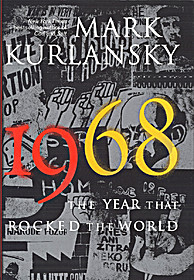

Perlstein poured extraordinary research into this book, and those who lived through the era may be stunned to learn all they missed at the time - or wished they had.

Not a news-making investigative foray into the Conservative movement, Reaganland is, instead, a phenomenal collection of data and detail masterfully woven into a compelling narrative about how the country turned right, steered brilliantly and cynically by think-tank founder Paul Weyrich and direct-mail mastermind Richard Viguerie. The Gipper seemed too old to run again in 1980 at the age of 69, but Perlstein shows how he managed to become the Cinderella at the Conservative ball, aided by a beleaguered Carter, who never took him seriously, even when it was too late. Jerry Ford, with Ronald Reagan, the sore loser, sitting on his hands, refusing to support Ford but claiming he did. Reaganland begins in July 1976, when the presidential landscape was Jimmy Carter vs. Bush’s presidency, which many Republicans refer to as “Reagan’s third term.” His latest tome, at more than 1,000 pages, deserves special praise because it capstones the political changes in 20th-century America that led to Ronald Reagan’s eight-year reign in the White House, plus the four years of George H.W. Perlstein has received critical acclaim for each volume, and rightly so. Now comes the fourth and final installment, Reaganland: America’s Right Turn: 1976-1980, which covers the presidency of Jimmy Carter and his defeat by Ronald Reagan, and the New Right. First, Before the Storm: Barry Goldwater and the Unmaking of the American Consensus second, Nixonland: The Rise of a President and the Fracturing of America and third, The Invisible Bridge: The Fall of Nixon and the Rise of Reagan. Now, add Rick Perlstein’s four volumes documenting the rise of Conservatism in America. Among them are the Bible Webster’s New International Dictionary of the English Language (second edition, unabridged) Winston Churchill’s six-volume The Second World War The Glory and the Dream: A Narrative History of America 1932-1972 by William Manchester and Winnie-the-Pooh. Even in the digital age, there are some hardbacks that demand prominence on the bookshelf.


 0 kommentar(er)
0 kommentar(er)
